
Hope in a Time of Monsters: Revitalizing Teaching and Learning with Compassionate Challenge
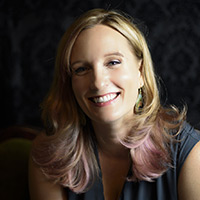 Sarah Rose Cavanagh, Senior Associate Director for Teaching and Learning in the Center for Faculty Excellence, Simmons University
Sarah Rose Cavanagh, Senior Associate Director for Teaching and Learning in the Center for Faculty Excellence, Simmons UniversityTeaching is a vocation. When supported with resources and security, it is a constantly renewing source of excitement and richness. The last several years of disruption, uncertainty, and overburdened workloads have exhausted teachers and students alike. Monsters have reared their heads, and we have understandably shrunk from them. Faculty are burnt out—sacrificing their own mental health, phoning it in out of desperation, or leaving the profession entirely. Students are experiencing an epidemic of mental health problems, especially of anxiety. As instructors, we can support and encourage student mental health through pedagogies of care. A pedagogy of care involves high-touch practices like frequent communication, flexibility, inclusive teaching practices, learning new technologies and techniques, and being enthusiastic and passionate. All these practices involve both a heavy investment of time and a high degree of emotional labor. How can we support our students without burning ourselves out? How can we revive our sparks? In this interactive keynote, Sarah Rose Cavanagh will present some research and food for thought based on her upcoming book on how higher education should respond to both faculty depletion and the student mental health crisis.
Sarah Rose Cavanagh is the Senior Associate Director for Teaching and Learning in the Center for Faculty Excellence at Simmons University, where she also teaches in the Psychology Department as an Associate Professor of Practice. She continues collaborations developed in her postdoctoral years with an ongoing appointment as a Research Associate in the Emotion, Brain, and Behavior Laboratory at Tufts University. Before joining Simmons, she was an Associate Professor of psychology and neuroscience (tenured) at Assumption University, where she also served in the D'Amour Center for Teaching Excellence as Associate Director for Grants and Research. Sarah's research considers the interplay of emotions, motivation, learning, and quality of life. Her most recent research project, funded by the National Science Foundation, convenes a network of scholars to develop teaching practices aimed at greater effectiveness and equity in undergraduate biology education. She is author of The Spark of Learning: Energizing the College Classroom with the Science of Emotion (2016), HIVEMIND (2019), and upcoming Mind Over Monsters: Supporting Youth Mental Health with Compassionate Challenge (2023). She gives keynote addresses and workshops at a variety of colleges and regional conferences, blogs for Psychology Today, and writes essays for venues like Literary Hub and The Chronicle of Higher Education. She’s also on Twitter too much, at @SaRoseCav.
Every Future Imagined by an Edtech Company Is Worse Than the Previous Iteration: Setting the Terms for the Future of Education
 Chris Gilliard, Writer, Professor and Speaker
Chris Gilliard, Writer, Professor and SpeakerPeople frequently imagine that the future of education emerges at the classroom level, yet this is often not the case. We should consistently ask: who sets the terms of how we imagine education, and who benefits? Much of the way that education technologies become embedded in classrooms reflects the expectations and values of venture capitalists, investment firms, and tech companies who see education as one of the few remaining societal wells that have yet to be tapped dry. This talk will explore the ways instructors are pressured by these processes that present a future where short-term profit motives are substituted for pedagogical expertise--often to the detriment of student, teacher, institution, and society. Shifting this dynamic depends upon recognizing it and embracing counter narratives rooted in local expertise.
Dr. Chris Gilliard is a writer, professor and speaker. His scholarship concentrates on digital privacy, surveillance, and the intersections of race, class, and technology. He is an advocate for critical and equity-focused approaches to tech in education. His ideas have been featured in the New York Times, the Washington Post, Wired, the Chronicle of Higher Education, and Vice. He is a Harvard Kennedy School Shorenstein Center Visiting Research Fellow, a member of the UCLA Center for Critical Internet Inquiry Scholars Council, and a member of the Surveillance Technology Oversight Project community advisory board.
Congratulations to Chris for his recent MacArthur Foundation Just Tech Fellows Award. The Just Tech Fellowship was awarded to six people to work on issues where social justice and technology intersect. Read more about the award.
Designing Inclusive Technology-Enhanced Learning Environments
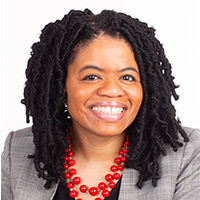 Tracie Addy, Associate Dean of Teaching and Learning, Lafayette College
Tracie Addy, Associate Dean of Teaching and Learning, Lafayette CollegeFostering inclusivity requires intentionality that starts at the design of a course and continues through the implementation of various teaching practices during the term. This interactive presentation geared towards practitioners and those who partner with them on their teaching efforts, will focus on how instructors can create inclusive (equitable and welcoming environments) in technology-enhanced learning environments throughout a course.
We will specifically highlight equitable teaching approaches that foster a sense of belonging at the beginning of a course to set the tone. We will discuss the importance of knowing who learners are, evidence-based tools such as the Who’s in Class? Form, and how instructors can make sense of the information received to respond to the diversity of a class. Additionally, we will discuss the importance of establishing community standards with learners in technology-enhanced learning environments to set the stage for inclusion. We will also expound upon how to foster inclusivity throughout the term.
Tracie Marcella Addy, PhD, MPhil, is the Associate Dean of Teaching & Learning at Lafayette College in Easton, Pennsylvania where she is responsible for working with instructors across all divisions and ranks to develop and administer programming related to the teacher-scholar model from classroom teaching to the scholarship of teaching. As the Director of the Center for the Integration of Teaching, Learning, and Scholarship, she develops and delivers programming on teaching and serves ex officio on the Teaching & Learning Committee. Her center’s many initiatives include a highly rated academy focused on inclusivity for instructors across ranks, disciplines, and appointment types that integrates students as partners.
In addition to these roles, she performs scholarship on teaching and learning and educational development, primarily focusing on learner-centered practices including active learning and inclusive teaching. She is co-author of the book What Inclusive Instructors Do: Principles and Practices for Excellence in College Teaching (2021) and a frequently invited keynote speaker and workshop facilitator.
Making Space and Time for Real Questions
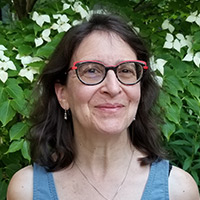 Susan Blum, Professor of Anthropology, University of Notre Dame
Susan Blum, Professor of Anthropology, University of Notre DameThere are many kinds of questions: Is this right? How many sources do I have to include? Are our annotated bibliographies due on Tuesday? We could call these "compliance questions." Or: How do different marriage patterns across societies affect the wellbeing of children? How do speakers' brain waves synchronize when they are in a conversation? How do digital platforms add affordances to communication, compared to face-to-face communication? We can call these "genuine questions."
If the key to learning is intrinsic motivation, and one of the keys to intrinsic motivation is space for curiosity, then questions are the embodiment of curiosity.
As a bonus, these questions may be asked of fellow students, not just the faculty member.
If our classes aim to foster such questions, then we have to make space, and time, for them. We also have to clear away a lot of the other stuff that communicates the message that what we are after is compliance. We also have to build a community so students are interested in learning with others, and to choose communicative platforms that enable student-generated questions.
In this talk, Susan D. Blum talks about questions, voices, agency, and the ways educators might design courses, not just to transmit predetermined information to passive recipients, but to welcome the active, and possibly messy, generation of new questions.
Susan D Blum is a professor of anthropology at the University of Notre Dame, currently fixated on education and pedagogical praxis, after a previous incarnation as a China anthropologist. She is the author of "I Love Learning; I Hate School”: An Anthropology of College (Cornell, 2016) and My Word! Plagiarism and College Culture (Cornell, 2009), and the editor of the recent volume Ungrading: Why Rating Students Undermines Learning (and What to Do Instead) (West Virginia University Press, 2020). With 5 co-authors, she has written “A Theory of Public Higher Education,” imagining public higher education created from scratch, published in Soundings: An Interdisciplinary Journal in July 2021 (Korstange et al., 2021). Her new manuscript, Schoolishness, is due to Cornell University Press in May 2022. In her work, she draws on her background in cultural, linguistic, and psychological anthropology to ask questions about learning, and about the ways institutions shape and are shaped by cultural patterns. Pedagogy is informed by such cultural understanding.
Navigating the Alternative Credential Landscape
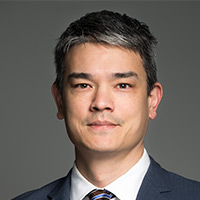 Gary Chinn, Assistant Dean for Digital Learning, Penn State University
Gary Chinn, Assistant Dean for Digital Learning, Penn State UniversityHigher education has traditionally relied on its authority as arbiter and grantor of academic credentials as a hallmark of its role in the educational journey of learners. And while the marketplace for postsecondary educational credentials has been fragmented for decades, quickly evolving recent trends ranging from badges to industry-based certifications to accelerated “micro” degrees have added a layer of complexity that can be challenging to navigate for institutions, students, and employers alike. Universities, colleges, and policymakers worry about how to assure quality educational experiences in an increasingly diversified credential environment. Learners must decide what skills and credentials they might need to advance in the workplace and locate educational opportunities that align with those areas for professional growth. Employers may find themselves weighing the importance of credentials as they seek the skilled workers in an increasingly competitive hiring environment.
According to the Lumina Foundation, the past 30 years has seen a surge of more than 800 percent growth in the number of certificates awarded by higher education institutions and other providers of education. Concurrently, the number of certifications offered by industry-based organizations has grown rapidly. Likewise, growth in online learning has fed the development of new kinds of alternative credentials such as badges, non-credit certificates, and industry certifications. And while more than 4,000 organizations offer credentials of some kind, less than 10 percent of these are reviewed by a third party.
Universities, colleges, and companies alike are complex organizations with many competing priorities. How are we to make sense of the increasingly chaotic world of credentialing to better align the needs of learners and employers with the expertise of our institutions?
Gary Chinn is Assistant Dean for Digital Learning at Penn State University's College of Arts & Architecture where he leads design, development, and delivery of fully online programs, curricular design of new academic programs, and technology integration efforts in support of resident instruction. Prior to joining Arts & Architecture he served as eLearning Initiative Project Manager at the Leonhard Center for the Enhancement of Engineering Education in the College of Engineering, and as online instructional designer for Teachers College at Columbia University.
Dr. Chinn holds a B.S. in film from the University of Texas at Austin, an M.S. in instructional systems technology from Indiana University at Bloomington, and a PhD in learning, design, and technology from Penn State’s College of Education. Chinn conducts research in two areas: the impact of technology on teaching and learning in design studio contexts; and aspects of online learners’ sense of institutional affinity and belonging. Dr. Chinn is active in professional associations, including leadership roles with the University Professional & Continuing Education Association (UPCEA), Educause, the Online Learning Consortium, and WCET.
[LIVE SESSION CANCELLED (RECORDING COMING SOON)] Pedagogical Disobedience: Small Acts of Resistance to Disrupt the Academic Machine
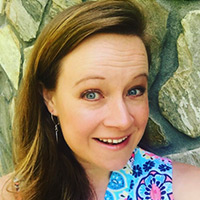 Lindsay Masland, Associate Director for Faculty Professional Development, Appalachian State University
Lindsay Masland, Associate Director for Faculty Professional Development, Appalachian State UniversityAlthough the pandemic is a convenient scapegoat for the rampant burnout and moral injury plaguing today’s college teachers, the reality is a bit more complex. For decades upon decades, those who love teaching have known all too well that the academic system was not built to cultivate or sustain such pedagogical enthusiasm. Many of us have been told to be quieter about our love for teaching, either explicitly through the well-meaning advice of our colleagues or implicitly through policies and compensation structures designed to devalue teaching’s role in the wider academic landscape. In this talk, I will map the topography of these explicit and implicit constraints on the positionality of teaching in academia, and I will advocate for acts of pedagogical micro-resistance as “counter-friction to stop the machine” (á la Thoreau). Although our margins for risk are individualized and depend on a variety of intersecting factors such as our social identities and job precarity, there is space for resistance in the pedagogy of every college teacher. Together, we will construct a roadmap to resistance that incorporates willful acts of pedagogical disobedience — that is, breaking spoken and unspoken rules — in service of building the learning experiences that both our students and ourselves truly deserve.
Dr. Lindsay Masland is the Associate Director for Faculty Professional Development at Appalachian State University. She also is an Associate Professor affiliated with the undergraduate Psychology department and the graduate School Psychology program at App State, where she teaches courses in statistics, educational psychology, and pedagogy. Lindsay serves as consulting editor for two journals that focus on teaching in higher ed, and she serves as the Director of the Annual Conference on Teaching. Recently, she was honored to receive both a university-wide teaching award and a national teaching award. Lindsay holds a BA and MA in experimental psychology from Wake Forest University and a Ph.D. in Educational Psychology with a concentration in Statistics from the University of Georgia.
“n” of One: My Hopes—and Fears—for the Future of Assessment
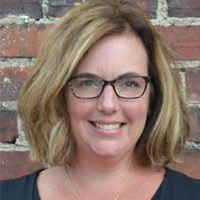 Kate McConnell, Vice President for Curricular and Pedagogical Innovation & Executive Director, VALUE Institute
Kate McConnell, Vice President for Curricular and Pedagogical Innovation & Executive Director, VALUE InstituteIt seems that at least once a semester, the Chronicle of Higher Education, InsideHigherEd, or even the New York Times runs an article bemoaning the state of assessment on our campuses. The reactions follow the usual patterns, with faculty hitting “forward” and those responsible for managing institutional assessment efforts gnashing their teeth.
We have seen some of this same dynamic playing out since our “pivot” to remote learning in the spring of 2020, with a vocal contingency bemoaning all-things-online and/or distance education, while practitioners and scholars of distant education countering (rightly) that “distance” is not the problem—the culprit is really poor pedagogy, including problematic approaches to assessment. But what if—the “Royal We” of assessment practitioners and scholars, along with our distance learning colleagues—exhaled and paused to engage more fully with the critiques, perhaps even offering up some of our own?
Because assessment as an accountability mandate understandably leaves many cold. When the language of accreditation and compliance takes precedence over our teaching and learning values, the assessment process quickly becomes a mechanical, reductionist exercise. But at its best, assessment illuminates, with powerful “aha!” moments that can help us drive toward greater student success. This session will engage participants in interrogating the question “How can we value student learning in an age of accountability” by addressing the very design of our assessment systems, including strategies for measuring student learning, making meaning of the data generated by assessment activities, and determining what – if anything – needs to change based on our assessment work, all with an eye toward reinforcing the connective threads that bind teaching, learning, and assessment together in a more hopeful, less fearful, way.
Kate Drezek McConnell, PhD, is Vice President for Curricular and Pedagogical Innovation and Executive Director of VALUE. Prior to taking on this role, Dr. McConnell served as AAC&U’s Assistant Vice President for Research and Assessment and Director of the VALUE Institute, AAC&U’s nationwide assessment system that enables any higher education provider (institution, PCE program, academic department, state, consortium, etc.) to collect and upload samples of student work to a digital repository and have the work scored by certified VALUE Institute scorers for external validation of institutional learning assessment. An educational psychologist by training, Dr. McConnell has written extensively on the reliability and validity of the VALUE approach to assessment. Her other research and campus consultations focus on using course-embedded assessment to improve teaching and learning while also addressing accountability and accreditation requirements; course-embedded assessment; aligning pedagogy with assessment efforts; faculty development; and leveraging the learning sciences in teaching, assessment, and evaluation. Before joining AAC&U, Dr. McConnell spent ten years at Virginia Tech working in assessment and evaluation as well as serving as affiliate faculty in Virginia Tech’s graduate program in educational psychology, teaching courses on cognitive processes and effective college teaching. She received a BA from the University of Virginia, an MA in history from Providence College (Rhode Island), and a PhD in educational psychology from Virginia Tech.
Exhausted Experts and Burned-Out Beginners: Mitigating the Diminishing Returns on Pandemic Pedagogical Learning for Online Teaching
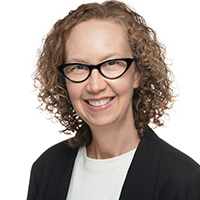 Jessamyn Neuhaus, Professor of U.S. History and Popular Culture, SUNY Plattsburgh & Interim Director, Plattsburgh Center for Teaching Excellence
Jessamyn Neuhaus, Professor of U.S. History and Popular Culture, SUNY Plattsburgh & Interim Director, Plattsburgh Center for Teaching ExcellenceEffective educators are always learning how to teach. From their first class to their class, they acquire new skills and insights, try new tools and techniques, get feedback, reflect, make improvements, and try again. They are continuous pedagogical learners. It’s not easy—because learning how to do anything well is never easy—but pedagogical learning rewards educators by building teaching self-efficacy and increasing student success.
At least, that’s how pedagogical learning normally works. In today’s pandemic era, pedagogical learning for many instructors has become significantly more difficult and far less satisfying. Because a huge percentage of instructors’ pedagogical learning since March of 2020 has focused on distance teaching and learning (DT&L), this changing context for faculty professional and educational development has a disproportionate impact on DT&L.
In this interactive 45-minute session, I invite campus leaders and faculty developers to consider the “diminishing returns” on pandemic era pedagogical learning. First, I’ll review the many intersecting factors contributing to educators’ individual and collective weariness in 2022, paying particular attention to how both experienced and novice online instructors are facing unprecedented demands on their pedagogical energy and skills.
Together we will identify both the initial advances as well as the ongoing localized and generalized obstacles to facilitating effective online learning spaces in the midst of a pandemic. I will share some strategies for how institutions, teaching centers, and individual academic coaches and faculty developers can support instructors’ continued DT&L pedagogical learning by using the very same teaching practices proving most necessary in pandemic era classrooms at every level, and then participants will brainstorm ways to offer instructors trauma-informed, learner-centered, community-minded, welcoming, inclusive and accessible DT&L faculty development.
Jessamyn Neuhaus is a professor of U.S. history and popular culture at SUNY Plattsburgh and Interim Director of the Plattsburgh Center for Teaching Excellence. Recipient of the SUNY Chancellor’s Award for Excellence in Teaching, she is the author of Geeky Pedagogy: A Guide for Intellectuals, Introverts, and Nerds Who Want to be Effective Teachers (West Virginia University Press) and editor of the forthcoming anthology Picture a Professor: Interrupting Biases about Faculty and Increasing Student Learning (WVUP).
In addition to two historical monographs—Manly Meals and Mom’s Home Cooking: Cookbooks and Gender in Modern America (Johns Hopkins University Press) and Housework and Housewives in American Advertising: Married to the Mop (Palgrave Macmillan)—Jessamyn has published pedagogical, historical, and cultural studies research in numerous anthologies and journals.
She regularly gives presentations and workshops on teaching, and as an advocate for scholarship on teaching and learning that celebrates infinite diversity in infinite combinations, Jessamyn’s mission as an educational developer is to help faculty nerd out about teaching and to use their big smart brains for increasing pedagogical self-efficacy. Visit her website geekypedagogy.com and find her on Twitter @GeekyPedagogy.
Coping with Burnout among Distance Staff
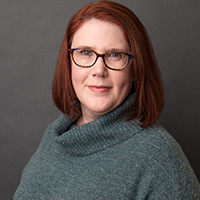 Rebecca Pope-Ruark, Faculty Teaching and Learning Specialist, Georgia Tech
Rebecca Pope-Ruark, Faculty Teaching and Learning Specialist, Georgia TechWhen is burnout a leadership problem not just a faculty problem? Always. Burnout is a mental health syndrome caused by unrelenting and unmanageable stress in the workplace. In a neoliberal society in which funding for higher education has steeply declined and faculty are asked to do more with less, burnout is an unfortunately common experience, made only significantly more damaging during the global COVID pandemic. And for faculty experiencing online and distance education for the first time, as well as those already skilled in this area, the dramatic shift from online to hybrid and HyFlex to in-person has been more than mentally jarring and increased work.
How can leadership support burned-out faculty? The vast majority of strategies recommended are individual coping strategies, thus putting the onus on the burned out faculty member to “be resilient” or embark on better “self-care,” band-aids at best. Because burnout is a cultural not just an individual problem, leaders must be involved in shaping policies and workplace conditions that allow faculty, and therefore students, to thrive.
In this interactive workshop, we’ll go beyond just definitions and coping strategies to explore what leaders at all levels can do to make cultural changes necessary to improve the mental health of faculty, on campus and online.
Rebecca Pope-Ruark, PhD, is an author, values coach, educational developer, and certified Scrum Master project management specialist, currently the teaching and learning specialist in the Center for Teaching and Learning at the Georgia Institute of Technology. After 12 years a tenure-track and tenured professor, she experienced a significant bout of burnout which changed the course of her career and writing. She is the author of the forthcoming (September 2022) book, Unraveling Faculty Burnout: Pathways to Reckoning and Renewal from Johns Hopkins University Press as well as the author of Agile Faculty: Practical Strategies for Managing Research, Service, and Teaching (University of Chicago Press, 2017) and co-editor of the collection Redesigning Liberal Education: Innovative Design for a Twenty-First Century Undergraduate Education (Johns Hopkins University Press, 2020). She is also the host of the agile academic, a podcast for women in higher education, available on Apple, Google, and Spotify platforms.
Post COVID Learning Online: What We Know and What We Need to Do
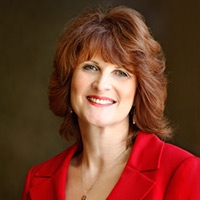 Kaye Shelton, Professor of Educational Leadership, Lamar University
Kaye Shelton, Professor of Educational Leadership, Lamar UniversityUntil the pandemic, many in our field spent a significant amount of time working to convince naysayers that online learning could be a quality learning experience for students. Then came COVID and the need for immediate remote learning, which did not support our case for quality. Now, what do we need to do to address the many bad experiences of emergency remote learning and make our case for quality?
Dr. Kaye Shelton is a Professor of Educational Leadership at Lamar University. Previously as Dean of Online Education for Dallas Baptist University, she led the development and ongoing operations of online programs with over 55 majors and degrees offered fully online. She is certified as an online instructor and has taught online since 1999. Dr. Shelton works nationally and internationally with the OLC Quality Scorecard for the Administration of Online Programs. She is also an Online Learning Consortium Quality Scorecard program evaluator and teaches workshops regarding its implementation.
An inductee of the Texas Distance Learning Hall of Fame, an Online Learning Consortium Fellow, and winner of the both the Blackboard and eLearning exemplary online course awards, she has published articles and book chapters along with An Administrator's Guide to Online Education. Dr. Shelton was awarded a Sloan-C Effective Practice award for her research regarding the Quality Scorecard for the Administration of Online Education Programs and the John R. Bourne award for Outstanding Achievement in Online Education. Dr. Shelton has been involved with research in online education since 1997 and has advised peer institutions regarding the creation of online learning programs and best practices for teaching online and faculty support.
Extending our Collective Imagination
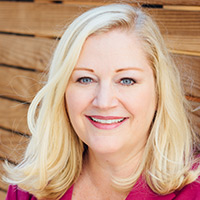 Bonni Stachowiak, Dean of Teaching and Learning, Vanguard University of Southern California
Bonni Stachowiak, Dean of Teaching and Learning, Vanguard University of Southern CaliforniaCuriosity is essential to the learning process. “In order to learn something, we first must wonder about it,” writes Josh Eyler in How Humans Learn. This session will explore the role digital tools play in heightening curiosity and extending our collective imagination toward better teaching. Opportunities to share ideas and connect with others will be fostered.
Bonni Stachowiak gets the privilege of speaking with exceptional educators on a weekly basis, as the host of the Teaching in Higher Ed podcast. Since 2014, her podcast has provided a space to explore the art and science of being more effective at facilitating learning. Teaching in Higher Ed also explores how to improve our productivity, so faculty can have more peace in our lives, and be even more present for our students.
Bonni is the Dean of Teaching and Learning at Vanguard University of Southern California. She’s also a Professor of Business and Management and teaches a couple times a year as an adjunct in an Educational Leadership doctoral program. She’s been teaching in-person, blended, and online courses throughout her entire career in higher education.
Bonni and her husband, Dave, are parents to two curious kids, who regularly shape their perspectives on teaching and learning.
Hear more about the topics that you won't want to miss from some of our featured speakers.